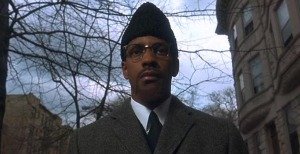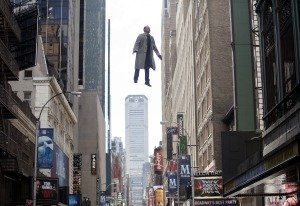Why Birdman Didn’t Change My Life
(and why I don’t know why everyone is so excited about it)
So, let’s talk about the Michael Keaton film, Birdman. I can at least mention the name, right? Of course, it was way down on my list. I still hadn’t seen Ida and I was stupidly excited by Whiplash because it had drums in it and I still watch clips from Drumline on YouTube. Then, during a week home over the holidays, I was sitting in a friend’s apartment as he played video games and he asked me if I had seen Birdman. “No,” I said. “But it’s the new Michael Keaton movie… is it any good?” He was silent.
I’m an all-around late bloomer. Behind on music, movies, all things internet, apps…the list could continue, but I can’t think of what else I’m behind on.
Which further clarifies my predicament.
So I surround myself with people who do know about those things so that I will know about those things.
The rub, of course, is that whenever I don’t like one of those things…my opinion is immediately discredited. If I’m telling the person who told me about the thing that I’m criticising… then my critical standpoint is laughable at best.
And so I asked my friend, my best friend (who knows fucking everything), if Birdman was any good.
He put down his video game controller, gave me a very serious stare and said, “You’ve got to see this movie.” And that was that. Case closed. SEE THE MOVIE.
So, when I was down in Houston visiting the in-laws last week, I went to see it. I sent my friend a text message as I was walking out. “Birdman is very good.”
He responded: “Just very good.” I wasn’t sure what to say. Was this like saying that Star Wars or The Godfather was “very good”? (I had swiftly been informed that I should refer to them as “GREAT” with the Caps Lock on.) Was I committing a serious artistic faux pa? I asked him what he’d thought of it.
He responded: “It’s probably one of my all-time favorites.” That response, combined with his stoic suggestion, means that it was, possibly, on a Star Wars or Godfather level for my friend. I sent him a text message of things I found interesting in the movie as a sort of apology for dismissing what had obviously been a very profound experience for him. But I still worried that I was at fault somehow. Of course, I told people who asked me that the movie was “good”. Both my girlfriend and I saw it together and we agreed that the movie was “good”. In fact, we thought it was “very good”. To say any more than that seemed inauthentic. When I tried to qualify it with a greater adjective, I felt a visceral tug on my gut. Like, you know, before you tell a lie
Of course, I’m so heavily invested in self-hate that I was flagellating myself over having such a filthy, rotten personal opinion of a movie that people I think know more than me like. If I’m going to be like that, I said to myself during one self-hate session, then my question to me is “So what do I believe in?”
What are my “favorites”? And why?
Well, I thought of a few I could name off the cuff: Annie Hall, Before Sunrise, Malcolm X, Rope.
I thought that it would be silly to try and draw these all together into a single thesis. After all, I’m not trying to write a paper on film aesthetics, but trying to define my own personal aesthetics. Why do I think something is good?
Maybe then, I should define what I think “good” is.
First, I think of good in a very Aristotelian manner. “Good”, to me, means noble. That sounds problematic already because it appears highly elitist. It is. In the Merriam-Webster Dictionary, one of the first definitions of “noble” is “of, relating to, or belonging to the high social class… of, relating to, or belonging to the nobility”. Nietzsche defined the genealogy of good in this very manner: the concept of good was what everybody in the highest classes (not everybody) agreed was good. That was passed down and accepted.
Another definition of “noble” is “having, showing or coming from personal qualities that people admire (such as honesty, generosity, courage, etc.)”. These “personal qualities”, I imagine, would also trace their genealogy back to the highest castes. Concepts that would be extended through strong persuasion or forced onto lower castes. In other words, I feel my whole idea of “good” (and my whole aesthetics) is bullshit.
Many of the definitions follow a similar sort of thread: “possessing, characterized by, or arising from superiority of mind”, “possessing very high or excellent qualities”, “famous or notable”, “very good or excellent”. Even the scientific definition, “chemically inert or inactive especially toward oxygen”, means a gas that does not interact with a basic element of life. Pretty elitist, if you ask me.
There’s one more definition of “noble” left though: “impressive in size or appearance”. Now, by attaching to this definition I realize that I may be grasping for straws to try and justify my choice of words. That may be so, but I also believe that it’s possible to exorcise something of worth from a concept otherwise tainted by the volatile waters of class struggle. When I say noble, I’m thinking of the Hebrew word “K-B-D”.
In the Hebrew Bible, its usage is translated as “heavy” in terms of overwhelming (usually negative sense). It is an overriding concept. In the Book of Exodus, the hardening of Pharaoh’s heart was K-B-D, an overwhelming insensitivity or dulling of the senses. It also meant “severity” in terms of slavery or plague or warfare. It was also used in terms of the overwhelming nature of divine punishment as well as the overwhelming nature of divine presence. The latter’s usually translated as “glory”. Concepts like “the interior” or “soul” are used too.
These are examples of a metaphoric word used in religion, but I think that it’s something people still experience. Largeness and immensity and heaviness are things that we can experience daily. Not just in a negative sense. Realizing that you’re getting married or about to become a parent or falling in love or just growing up can all be heavy. You’re, in a sense, falling into a cultural system bigger than you, that you may have resolved that you would avoid. Now here you are and here I am. In some way and in some form, you’re a part of something bigger than you that you never thought you would be a part of.
Realizing that is, I guess, human. So maybe I’m saying that I think human beings are (or, I would say have the capacity to be) noble.
Now, all this is to define the way I think about the word “noble”. And that is to define the way I think about “good”. And all this is a way of getting back to a description of why I like the movies I like.
Annie Hall, for example, doesn’t seem like an obvious candidate for nobility. Partly because it’s a comedy and Woody Allen comedies are known for their absurd and farcical nature (the majority of them, I should say, lately he’s been far more subdued… in my opinion, of course…I feel like an asshole even saying the word now). Alvy himself admits that his love for Annie is something beyond love. Their relationship is itself told indirectly through standup routines and stories of failed past relationships. The storyline isn’t linear, but it isn’t linear because it’s trying to escape the very mystery of love. Love is essential, Alvy says, because it’s neurotic.
When I think of Annie Hall, the immensity or nobility that I’m thinking of revolves around the inability to describe something that we feel deeply defines who we are or how we feel about others. The movie revolves around this concept. The doom of Alvy and Annie’s relationship is itself a side-effect of the exploration of this strange notion of love. When I think of that movie, I see so many moments that could have gone in an infinite number of successful directions.
I feel the same way when I think of Richard Linklater’s Before Sunrise. Everything is intensely fragile between Jesse and Celine. We know that they have established a pre-set time on their togetherness. Everything that they do must be done at this moment or not be done at all. Jesse calls it “real time”. Because of this, everything in the film has a very sublime appeal. The people that Jesse and Celine meet are instrumental to falling in love and, yet, they will never meet them again. Everything is fleeting and yet, the brevity of their time reifies everything and everybody. After Jesse and Celine part, the film reviews all the places they were in absence of the two people who enlivened the space and gave it a momentary sublimity. It is the respect that the film gives to time that makes it into an artifact. The way I look at old photographs and experience or see something that I didn’t notice before is the way this film moves. The life it has.
And perhaps that’s what I mean when I say “good”. When I define it as noble and define noble as K-B-D. Malcolm X captures this but in an awkward way. Position the entire film around Spike Lee’s Dolly Shot of Denzel Washington as Sam Cooke’s “A Change Is Gonna Come” plays. The film ceases all plot line and dialogue and forces entirely on Washington’s Malcolm X who moves without moving, who is pushed forward by some force we cannot see. By the look on his face, you can see not just the current situation of his life but the larger matrix of the Civil Rights movement as it washes over him. The Dolly Shot scene is a meditation that Malcolm X and the viewer participate in together. That has resonance and the resonance comes from the unnamable heaviness we see on the Denzel Washington’s face. The suspension of time that allows it to happen.
Lastly, Hitchcock’s Rope caused an anxiety attack in me much like Before Sunrise did. In a different way, of course. Linklater’s film made me want Jesse and Celine to squeeze as much as possible from every second and I worried sick that they wouldn’t. In Rope, I wanted Jimmy Stewart to open the trunk up and leave it closed. Of course I wanted the trunk to be opened and the murderers to be caught, but I also thrived on the tension that itself thrived on the trunk staying closed. The power of secrecy. We never see the body. The trunk is never opened and yet the secret is revealed. We never see the body. In the trunk was the origin of all things, the revelation of all secrets that would destroy whatever remnant of the sacred that is contained in the world. In its way, the movie maintains the secret. That trunk is heavy. I watched the trunk for the entire movie. More than Jimmy Stewart or Farley Granger or John Dall. There’s a character of the arc of the covenant to it. A queer heaviness to the whole thing. It should’ve won an Academy Award.
I can’t say that for Birdman.
I think that the reason I’m tempted to feel guilty for not liking Birdman is that I feel “not liking” Birdman is akin to “not-liking” Raymond Carver. But it’s not true. I think that the writers orbit the film around Carver’s particular approach to characterization. They’re using Carver’s particular aesthetic for their juice, their gas. And they’re trying to tag their own characters onto the back. Like a Rolls Royce pulling a really nice homecoming float.
The dialogue occurs. It is not presented by people. And when I say “occurs”, I mean that it is dropped down like lead weights. When the stage lighting falls on an actor’s head at the beginning of the movie, that’s how hard the dialogue falls in the movie.
It’s not necessarily a bad thing. It’s a nice experience. But that’s not heaviness. That’s not the K-B-D that I’m talking about.
It’s a farce of it.
My experience of the noble comes as a heaviness of the infinitesimally small, the interior experience of our own heaviness. The hidden. The secret. This works from the organic formation of a character through his or her relationship with other people or with themselves. Annie Hall follows the inability to talk about love in a direct way. That, ironically, a relationship is the worst way to understand love. Rope circles around the object of truth while revealing that in order to construct the concept of truth we cannot reveal the object of truth. Somehow (it’s not revealed why) that would destroy truth.
Birdman works on the outer. The largeness of embarrassment, of public shame. Riggan’s (Keaton) attempted public suicide is no secret. It’s there from the very beginning. Out in the open. Always known. From the first scene of Riggan shooting himself on stage, it’s clear that this is how things must end, too. Mike Shiner tells Riggan that he needs something more realistic than a prop gun. Laura and Lesly discuss a failed suicide by injured actor Ralph where he shoots his nose off. The end scene, where Riggan’s private superpowers of telekinesis and flight are revealed to his daughter, comes off as a false attempt at some sort of stride into infinity, some sort of artifice of sublimity.
I don’t mean that it’s a bad ending, but it does mean that the film has an awkward asymmetry that the rest of its elements do not seem to match. It doesn’t mean it’s a bad movie. It’s a good movie. It’s a “very good” movie. But it’s not a great movie. It isn’t good in the sense of noble. When the movie was finished, I felt like whatever it said was done. You can forget about it.
I think the one element of the movie that prevents this is the one element that was probably meant to elevate it: structuring it around and within the language of Raymond Carver. The characters speak in the voice of Carver’s characters. The movie begins with the epigram inscribed on Carver’s tombstone. The interior space of the movie roots itself in an outside force (Carver) and not that of the characters. When it finishes, I wanted to read Carver’s story, but I didn’t think about the movie. The movie was a husk. It blew away and there was Carver.
So when I finished watching Birdman, I wondered why I even saw it in the first place. It was an aesthetic commentary on something that already said everything needed to be said. That’s not even a Raymond Carver story in my opinion, which all seem like koans to me.
The movie was kind of a marginal affair. An assemblage of great shots and great actors. No true soul to it. I feel like it’s more than a compliment to say that it was “very good”.







